As a seasoned cook who’s always been fascinated by the science behind food, I’ve often found myself questioning the safety of various kitchen tools and ingredients. Aluminum cookware, in particular, has always been a source of debate and concern. It’s lightweight, affordable, and conducts heat well, making it a popular choice for many. But the nagging question remains: is it safe to use?
Over the years, I’ve delved into countless articles, studies, and expert opinions, trying to piece together the truth about aluminum toxicity. And let me tell you, it’s not as simple as a yes or no answer. There are valid concerns, but there are also nuances and perspectives to consider.
In this article, I’ll take you on my journey of understanding aluminum cookware, exploring both sides of the coin. We’ll delve into the science behind aluminum toxicity, the potential risks, and the factors that contribute to its absorption into our bodies. We’ll also examine the conflicting opinions surrounding aluminum cookware, explore alternative options, and ultimately, help you make an informed decision about what’s best for your kitchen and your health.
(Part 1) The Aluminum Conundrum: A History of Concerns
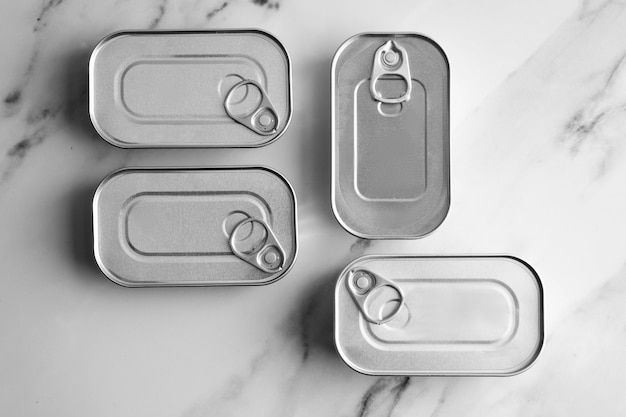
Aluminum has been a part of our lives for centuries, but its use in cookware became widespread in the 20th century. Initially, it was hailed as a revolutionary material, offering a durable and lightweight alternative to heavier cookware. But with time, concerns about its potential health implications began to surface.
The Rise of Aluminum and Early Worries
The story of aluminum cookware actually starts with the discovery of aluminum itself. Back in 1825, a Danish scientist named Hans Christian Oersted managed to isolate the metal. For a while, it was considered more valuable than gold due to its rarity. But with advances in extraction techniques, aluminum became more accessible.
Imagine a world where this shiny new metal was considered more valuable than gold! That’s what happened in the early days of aluminum. The excitement was palpable, and it quickly found its way into various industries. By the early 20th century, the “aluminum age” had arrived, with aluminum finding its way into everything from kitchenware to airplanes. It seemed like the material of the future. However, as its use expanded, so did the concerns about its potential health effects.
Early Studies and the Growing Debate
Early studies on aluminum toxicity were limited and often contradictory. Some researchers pointed to the metal’s accumulation in the body, raising concerns about its impact on various organs, particularly the brain. This led to a growing debate about the safety of aluminum cookware.
I remember reading one particularly chilling article about aluminum’s potential link to Alzheimer’s disease. It suggested that aluminum could build up in the brain and contribute to the development of the disease. While these findings were intriguing, they were often met with skepticism from other researchers. It was like a scientific thriller, with researchers trying to piece together the puzzle of aluminum's potential role in health problems.
The Importance of Perspective
It’s crucial to approach these early studies with a critical eye. The methods used in some cases were questionable, and the findings were often extrapolated to humans without sufficient evidence. It’s also important to remember that the scientific understanding of aluminum toxicity has evolved significantly since those early days.
We've learned so much more about the complex relationship between aluminum and our bodies since those early studies. It’s important to be informed about the evolving science and to avoid drawing hasty conclusions based on incomplete information.
(Part 2) Aluminum in the Body: Absorption, Accumulation, and Toxicity
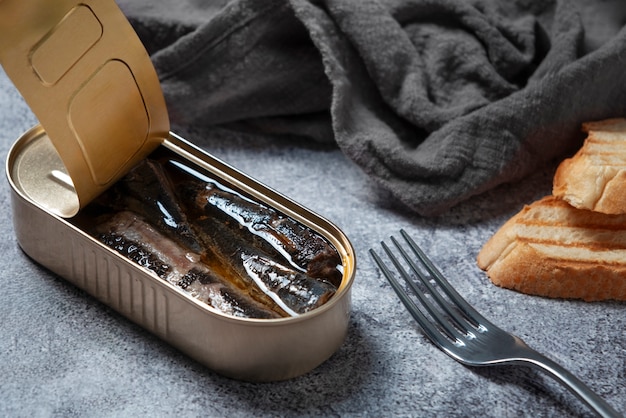
To understand the potential risks of aluminum cookware, we need to understand how aluminum interacts with our bodies. How does it get in? Where does it accumulate? And how does it affect us?
Aluminum Absorption: The Key to Understanding Toxicity
The main route of aluminum exposure is through ingestion. This can happen through food, water, or even medications. While our bodies naturally absorb some aluminum, the amount absorbed depends on several factors, including:
- The type of food or beverage consumed
- The presence of other chemicals or minerals in the food
- Individual factors like age, health status, and digestive health
Think of it like a filter. Our bodies are designed to filter out most of the aluminum we consume. However, some factors can make it easier for aluminum to slip through that filter. For example, acidic foods like tomatoes and citrus fruits can enhance aluminum absorption. That’s why I try to avoid cooking these types of foods in aluminum pots, just to be safe. It’s like giving your body an extra layer of protection against unnecessary exposure.
Aluminum Accumulation: A Long-Term Concern
While most of the aluminum we ingest is excreted, some can accumulate in various organs, including the bones, liver, and brain. The extent of this accumulation varies based on individual factors and exposure levels.
It’s like a slow drip – over time, even small amounts of aluminum can build up in the body, potentially reaching levels that could cause health issues. This is why it’s important to be mindful of our exposure to aluminum, even from seemingly innocuous sources. It's like a slow, silent build-up that might not be noticeable at first, but can have consequences over time.
The Aluminum Toxicity Debate: What Does the Evidence Say?
The question of aluminum toxicity has been hotly debated for decades. Some studies have linked high levels of aluminum in the body to various health conditions, including:
- Alzheimer’s disease
- Kidney disease
- Bone disease
- Neurological disorders
However, it’s important to note that these links are often based on observational studies, which can’t definitively prove cause and effect. The exact mechanisms by which aluminum might cause these conditions are still being investigated.
It's like a complex jigsaw puzzle, where researchers are trying to piece together the relationship between aluminum exposure and various health outcomes. While some pieces might seem to fit together, we need more research to confirm the full picture.
(Part 3) Aluminum Cookware: A Closer Look at the Risks

Now that we have a better understanding of aluminum’s behavior in the body, let’s focus specifically on its use in cookware. Is there a reason to be concerned about using aluminum pots and pans?
The Leaching Factor: Aluminum’s Transfer to Food
One of the main concerns surrounding aluminum cookware is the possibility of leaching, which is the transfer of aluminum from the cookware to food. Several factors can influence leaching, including:
- The acidity of the food: Acidic foods, as mentioned earlier, can increase aluminum leaching
- Cooking temperature: High temperatures can increase the rate of leaching
- The condition of the cookware: Scratched or damaged cookware can leach more aluminum
In my own experience, I’ve noticed that using aluminum pots for acidic foods, like tomato sauce, can sometimes leave a metallic taste. While this doesn’t necessarily indicate a harmful level of aluminum transfer, it does raise a concern about potential leaching. It's like a subtle warning sign, reminding us to be cautious about potential exposure.
The “Myth” of Aluminum Toxicity from Cookware
Some experts argue that the amount of aluminum leached from cookware is negligible and unlikely to cause significant health risks. They point out that the daily intake of aluminum from other sources, like food and water, is far greater.
I understand this perspective, but I still prefer to err on the side of caution. It’s like the saying goes, “Prevention is better than cure.” While the amount of aluminum leached from cookware might be small, even small amounts can accumulate over time. It's a matter of personal choice and risk tolerance.
The Case for Avoiding Aluminum Cookware: My Perspective
Personally, I’ve made a conscious decision to minimize my use of aluminum cookware. I choose to cook most of my meals in stainless steel, cast iron, or ceramic cookware, which I find to be more neutral and less likely to leach metals into my food.
I understand that aluminum cookware can be convenient and affordable, but for me, the potential health risks outweigh the convenience. It’s a matter of personal choice and risk tolerance. But I feel that it’s important to be informed about these risks and make decisions that align with our own values.
(Part 4) Alternatives to Aluminum: A Smorgasbord of Choices
If you’re looking to move away from aluminum cookware, fear not! There are plenty of excellent alternatives available, each with its own unique advantages and disadvantages.
Stainless Steel: A Timeless Classic
Stainless steel has been a popular choice for cookware for decades. It’s durable, heat-resistant, and relatively easy to clean. It’s also less likely to react with food, making it a good choice for acidic recipes.
The only downside to stainless steel is that it can be a bit more expensive than aluminum, and it may require more attention to prevent sticking. But for me, the peace of mind and durability make it a worthwhile investment. It's like a trusty friend, always reliable and ready for any culinary adventure.
Cast Iron: A Robust and Versatile Choice
Cast iron cookware is a true kitchen workhorse. It’s incredibly durable, can withstand high temperatures, and develops a natural non-stick coating over time. It’s also excellent for searing meats and creating those lovely crispy crusts.
However, cast iron is heavy, requires proper seasoning, and can be prone to rust if not cared for properly. But with a little effort, it can last a lifetime and even become a treasured family heirloom. It's a bit like a vintage car - requires some care and attention, but can be a beautiful and valuable addition to your kitchen.
Ceramic Cookware: A Non-Stick Option
Ceramic cookware is becoming increasingly popular, thanks to its non-stick properties and the perception of being healthier than other options. It’s often made with materials like ceramic-coated aluminum or stainless steel.
While ceramic cookware can be a good choice, it’s important to note that the non-stick coating can degrade over time, potentially releasing harmful chemicals. Also, some ceramic cookware can chip or crack, making it less durable than other options. It's like a delicate flower, beautiful but needing some extra care.
Other Options: Glass, Copper, and More
Beyond these common options, there are many other types of cookware available, each with its own advantages and disadvantages. Glass cookware is a good choice for baking, while copper cookware offers excellent heat conductivity.
Ultimately, the best choice for you will depend on your individual needs and preferences. Consider the types of cooking you do most often, your budget, and your level of comfort with different materials. It's like exploring a culinary marketplace, with a variety of options to choose from, each with its own unique qualities.
(Part 5) Beyond Cookware: Aluminum in Our Everyday Lives
While aluminum cookware is a significant source of exposure, it’s not the only one. Aluminum is present in a wide range of products we use daily, from food packaging to medications.
Aluminum in Food Packaging: A Hidden Source of Exposure
Aluminum foil is a common sight in our kitchens, used for wrapping food, lining baking trays, and storing leftovers. While it’s generally considered safe for short-term use, some studies have shown that aluminum can leach into food, particularly when in contact with acidic or fatty foods.
I try to be mindful of my use of aluminum foil, opting for reusable alternatives whenever possible. For example, I use parchment paper instead of foil for baking and choose glass or stainless steel containers for storing food. It's like being a detective, searching for hidden sources of aluminum exposure and finding safer alternatives.
Aluminum in Medications: A Less-Known Source
Aluminum is often used as an inactive ingredient in medications, particularly antacids and antiperspirants. While the amounts used are typically small, they can contribute to overall aluminum exposure, especially if used regularly.
I’m careful to read medication labels and try to choose alternatives that don’t contain aluminum, whenever possible. It’s also a good practice to discuss any concerns about aluminum exposure with your doctor or pharmacist. It's like being a savvy consumer, making informed choices about the products we use, even those we might not initially think about.
Aluminum in Other Products: A Wide-Ranging Presence
Aluminum is found in a wide range of everyday products, including:
- Water purification systems
- Deodorants and antiperspirants
- Food additives
- Paints and coatings
- Construction materials
While these sources may not be as direct as cookware, they still contribute to our overall exposure to aluminum. It's like an invisible web of aluminum, weaving its way through our daily lives.
(Part 6) Aluminum Toxicity and Health: A Complex Relationship
The link between aluminum exposure and health outcomes is complex and still being investigated. While some studies suggest potential risks, others have shown no clear connection.
The Alzheimer’s Connection: A Controversial Topic
The potential link between aluminum and Alzheimer’s disease has been a subject of intense debate for decades. Some studies have shown elevated aluminum levels in the brains of Alzheimer’s patients, while others have found no association.
The exact role of aluminum in the development of Alzheimer’s, if any, is still unclear. Some researchers believe that aluminum might contribute to the formation of amyloid plaques, which are characteristic of the disease. However, this theory is still being explored, and other factors are likely involved. It's like a puzzle with many pieces, and the role of aluminum in Alzheimer's is just one piece of the larger picture.
Aluminum and Kidney Disease: A Potential Risk Factor
Aluminum has been linked to kidney disease, particularly in individuals with existing kidney problems. Aluminum can accumulate in the kidneys, interfering with their ability to filter waste products from the blood.
If you have kidney disease, it’s especially important to limit your exposure to aluminum, both from cookware and other sources. Your doctor can provide specific guidance on how to minimize your exposure. It's like a delicate balance, where individuals with kidney problems need to be extra cautious about their aluminum intake.
Aluminum and Other Health Concerns: A Broad Spectrum
Beyond Alzheimer’s and kidney disease, aluminum has been implicated in various other health conditions, including:
- Bone disease: Aluminum can interfere with bone metabolism and contribute to bone weakness
- Neurological disorders: Some studies have suggested a link between aluminum exposure and neurological disorders, such as Parkinson’s disease and amyotrophic lateral sclerosis (ALS)
- Immune system dysfunction: Aluminum can suppress the immune system, making individuals more susceptible to infections
However, the evidence linking aluminum to these conditions is often inconclusive. More research is needed to clarify the exact nature of these potential risks. It's like a scientific journey, where researchers are constantly seeking to understand the full scope of aluminum's impact on our health.
(Part 7) Minimizing Aluminum Exposure: Practical Tips and Strategies
While eliminating aluminum from our lives entirely is almost impossible, we can take steps to minimize our exposure.
Switching to Aluminum-Free Cookware: A Simple First Step
As discussed earlier, switching to aluminum-free cookware is a good first step. Choosing stainless steel, cast iron, or ceramic cookware can significantly reduce your exposure to aluminum from cooking. It's like taking a proactive step towards reducing aluminum exposure, empowering yourself with healthier choices.
Reading Labels and Choosing Aluminum-Free Products: Making Informed Decisions
Pay attention to food labels and choose products that don’t contain aluminum. This includes food additives, medications, and personal care products. Many companies now offer aluminum-free alternatives. It's like being a detective, reading labels and searching for clues to identify products that are aluminum-free.
Avoiding Acidic Foods in Aluminum Cookware: A Prudent Practice
Avoid cooking acidic foods in aluminum cookware, as this can increase leaching. This includes foods like tomatoes, citrus fruits, and vinegar-based sauces. It's like a simple tip that can make a big difference in minimizing aluminum exposure.
Using Aluminum Foil Sparingly: A Wise Choice
Limit your use of aluminum foil, especially for storing acidic or fatty foods. Opt for reusable alternatives like parchment paper, silicone baking sheets, or glass containers. It's like making small changes that can have a big impact on your aluminum intake.
Choosing Aluminum-Free Deodorants and Antiperspirants: A Healthier Option
Consider switching to aluminum-free deodorants and antiperspirants. Many brands offer effective alternatives that don’t contain aluminum. It's like finding a healthier alternative, making a choice that benefits both your body and the environment.
Staying Hydrated: A Simple Yet Effective Strategy
Drinking plenty of water helps flush out toxins, including aluminum, from your body. Aim for eight glasses of water per day, or more if you’re active or live in a hot climate. It's like giving your body a natural cleanse, supporting its ability to eliminate toxins.
Following a Healthy Diet: Supporting Overall Well-Being
A healthy diet rich in fruits, vegetables, and whole grains provides essential nutrients that can support your body’s natural detoxification processes. It's like nourishing your body with the power of nature, building a stronger foundation for health and well-being.
(Part 8) The Aluminum Conundrum: Finding a Balance
The truth about aluminum toxicity is that it’s a complex issue with no easy answers. While there are valid concerns about the potential risks, the evidence is often conflicting, and more research is needed.
Ultimately, it’s up to each individual to decide how much risk they’re willing to take. If you’re concerned about aluminum exposure, there are steps you can take to minimize your intake. But it’s also important to avoid unnecessary fear and to maintain a balanced perspective.
A Word of Caution: Don’t Panic
It’s easy to get caught up in the fear-mongering surrounding aluminum, but it’s important to keep things in perspective. The amount of aluminum we’re exposed to through cookware and other everyday products is generally considered safe for most people. It's like navigating through a sea of information, staying calm and making informed choices.
However, if you have any health concerns or are particularly sensitive to aluminum, it’s always best to talk to your doctor. They can provide personalized advice and guidance based on your individual needs. It's like seeking guidance from an expert, ensuring your health and well-being are a priority.
The Bottom Line: Making Informed Choices
Whether you choose to completely avoid aluminum cookware or continue using it with caution, the key is to be informed and make choices that align with your own values and risk tolerance.
By understanding the potential risks and benefits of aluminum, and by making conscious decisions about our exposure, we can take control of our health and make informed choices about the products we use in our kitchens and in our everyday lives. It's like being an empowered consumer, taking charge of our health and making choices that align with our values and priorities.
FAQs
1. Is all aluminum cookware created equal?
No, not all aluminum cookware is the same. Some types are anodized, which creates a hard, durable surface that’s less likely to leach aluminum. Other types, like those with a Teflon coating, may have their own risks. It’s important to read product labels carefully and choose cookware from reputable brands. It's like choosing a trusted partner, carefully selecting aluminum cookware that meets your safety standards.
2. How can I tell if my aluminum cookware is leaching?
It can be difficult to determine if your aluminum cookware is leaching just by looking at it. However, if you notice a metallic taste in your food, or if the cookware appears to be corroded or damaged, it’s a good idea to stop using it and replace it with a different type of cookware. It's like listening to your intuition, paying attention to subtle clues that might indicate potential leaching.
3. How much aluminum is safe to consume?
The exact amount of aluminum that’s safe to consume varies based on individual factors like age, health status, and kidney function. The World Health Organization (WHO) has established a provisional tolerable weekly intake (PTWI) of 7 mg of aluminum per kilogram of body weight. However, it’s best to minimize your exposure to aluminum whenever possible. It's like setting a limit, being mindful of aluminum intake and seeking to keep it within safe bounds.
4. What are the signs of aluminum toxicity?
The signs of aluminum toxicity can vary depending on the level of exposure and individual sensitivity. Some common symptoms include fatigue, headaches, bone pain, and neurological problems. If you experience any of these symptoms, it’s important to consult a doctor. It's like listening to your body, recognizing when something isn't right and seeking medical advice when needed.
5. What are some aluminum-free alternatives to aluminum foil?
There are many aluminum-free alternatives to aluminum foil, including:
- Parchment paper: A good choice for baking and lining baking sheets
- Silicone baking sheets: Durable and reusable, great for baking and storing food
- Glass containers: Ideal for storing food in the refrigerator or freezer
- Reusable beeswax wraps: A natural and eco-friendly option for covering food
Choose the option that best suits your needs and preferences. It's like having a culinary toolkit of aluminum-free options, ready to embrace a healthier way of cooking and storing food.
Everyone is watching
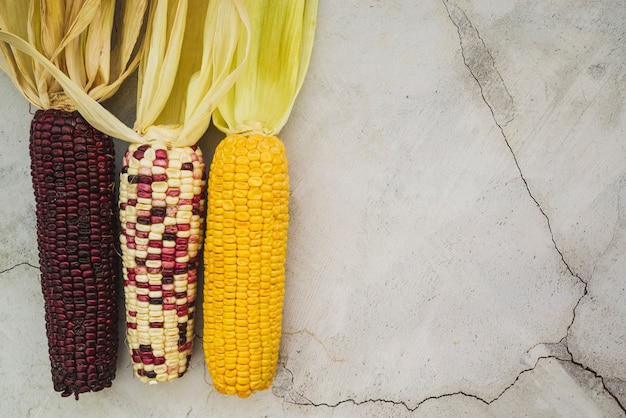
Corn on the Cob: The Ultimate Guide to Perfectly Cooked Ears
Healthy MealsAh, corn on the cob. Just the name evokes images of sunny days, barbecues, and that sweet, juicy flavour that ...
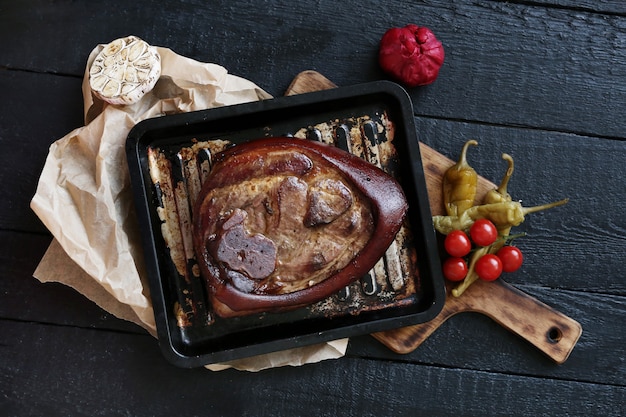
Perfect Pork Roast Oven Cooking Time: A Guide to Delicious Results
Healthy MealsThere's something truly satisfying about a perfectly roasted pork. The aroma alone is enough to make your mout...

Ham Cooking Time: How Long to Bake, Smoke, or Boil a Delicious Ham
Healthy MealsAh, ham. It's a classic, isn't it? A real crowd-pleaser, especially around holidays. And when done right, it'...
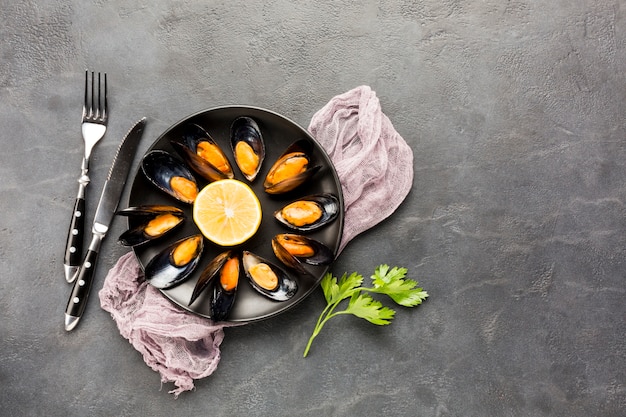
Scallops: The Ultimate Guide to Perfect Cooking
Healthy MealsAh, scallops. Those delicate, sweet, and utterly delicious morsels of the sea. They hold a special place in my...

Spaghetti Squash: The Ultimate Guide to Cooking and Serving
Healthy MealsRemember that time you saw spaghetti squash at the supermarket, looking all bumpy and strange, and thought, "W...
